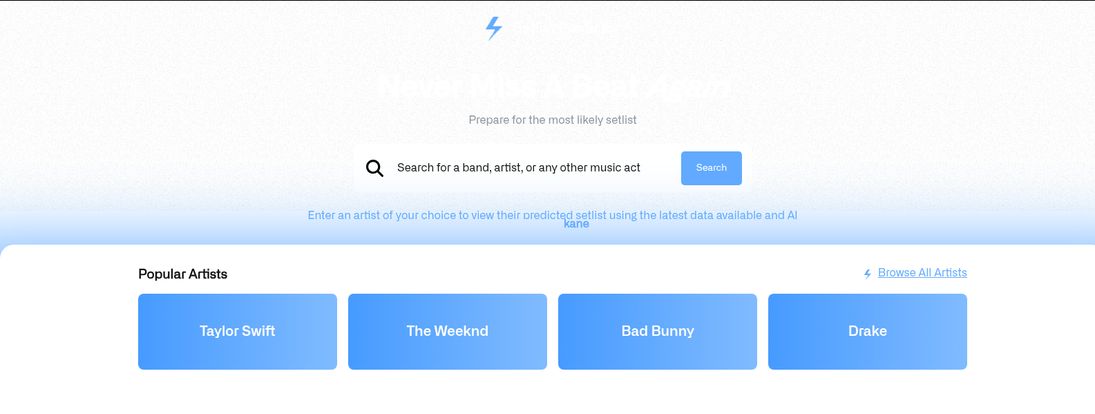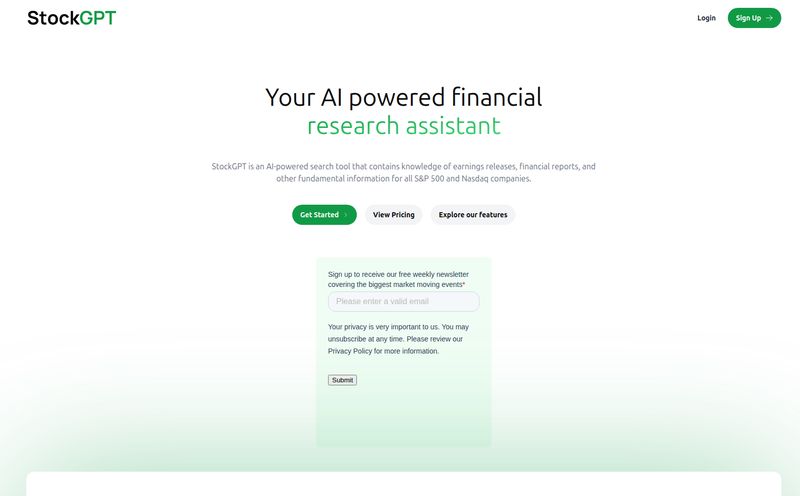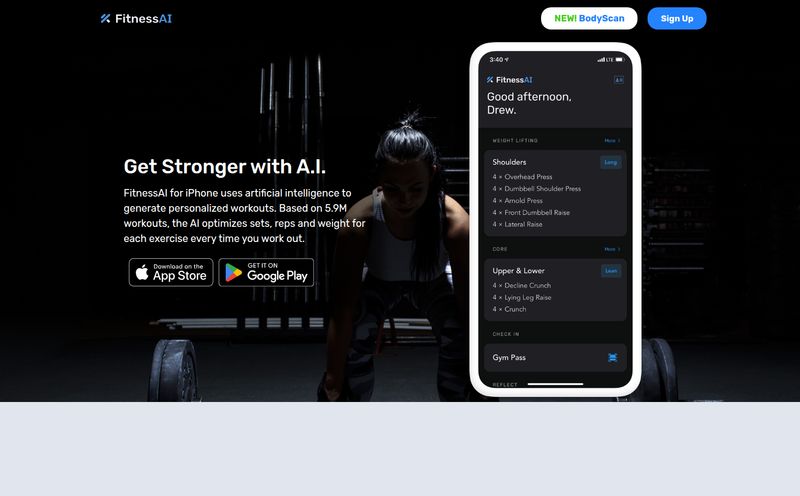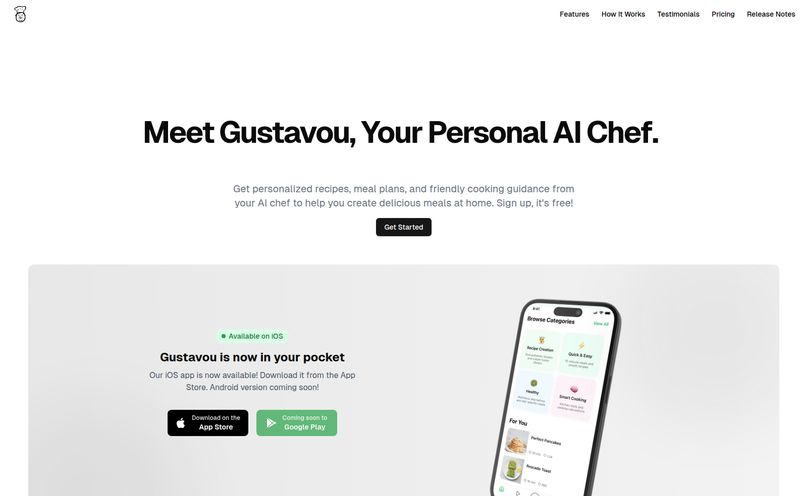You know the feeling. You’ve just dropped a not-insignificant amount of cash on concert tickets. The date is circled on your calendar. You’re counting down the days. But then, a tiny little seed of anxiety starts to sprout in the back of your mind: “What if they don’t play my song?”
It’s a uniquely modern form of FOMO. We’ve all been there. Standing in a crowd, screaming your lungs out, having the time of your life... but then the house lights come up, and you realize they never played that one deep cut from their second album. The one that got you through that tough breakup. A tiny bit of the magic deflates, right?
For years, the only way to prep was to stalk fan forums or scour sites like Setlist.fm the night before a show, piecing together clues like a detective. Well, I recently stumbled across a tool that wants to do all that legwork for you. It’s called Setlist Predictor, and it uses AI to try and crack the code. My inner SEO-nerd and my outer music-fanatic both perked up. I had to see what this was all about.
So, What on Earth is Setlist Predictor?
In a nutshell, Setlist Predictor is a web tool designed to do exactly what its name suggests. You type in an artist’s name, and it spits out what it believes will be the “most likely setlist” for their upcoming shows. Pretty straightforward.
But the real kicker isn't just the list of songs. The tool then generates a Spotify playlist based on its prediction. One click, and you have the entire potential concert ready for your listening pleasure. It’s designed to be the ultimate pre-show hype machine, helping you learn the words to new tracks or just get in the zone on your way to the venue. No more awkwardly humming along to the new single you haven't learned yet.
Peeking Behind the AI Curtain: How the Magic Happens
Alright, so how does it work? It’s not actually magic, though it can feel like it. While the site itself is pretty minimalist, my years in this industry have taught me a thing or two about how these data models operate. The AI is almost certainly crunching a ton of data from various public sources.

Visit Setlist Predictor
Think about it: it’s likely scraping recent setlists from the current tour to identify the core songs that are played every single night. Then, it probably looks at rotational spots—those 2-3 songs that artists swap out to keep things fresh. It might even analyze historical data. What songs do they always play in a certain city? Which encore standards are almost guaranteed? The model takes all these data points, weighs them, and generates a probability-based list. It’s less about being a psychic and more about being an incredibly powerful pattern-recognition machine. A numbers game, really.
I Took It for a Spin: A Quick Walkthrough
The user interface is dead simple, which I appreciate. No fluff. You land on the page, and you’re greeted with a search bar. For my little experiment, I typed in “Taylor Swift,” since she’s on their popular list and her Eras Tour setlist is famously long and structured, but with a few surprises.
The site loaded for a moment and then presented a predicted setlist. It also showed me her upcoming tour dates, which is a nice touch. The main event, of course, was the big button that said “Open on Spotify.” I clicked it, and boom, a new playlist was instantly created in my Spotify account, ready to go. The process was smooth and took less than 30 seconds. It’s the kind of simple, effective tool you wish you’d thought of first.
The Good, The Bad, and The Encore
No tool is perfect, right? So let’s break down where Setlist Predictor shines and where it might hit a few sour notes.
The Parts That Get a Standing Ovation
The Spotify playlist integration is, without a doubt, the star of the show. It’s one thing to see a list of song titles; it’s another to have them instantly streamable. This is the feature that elevates it from a novelty to a genuinely useful tool for concert prep. I can see myself using this on the drive to every show from now on. It’s just so… easy.
I also love that it shows upcoming events. It closes the loop, turning a curiosity tool into a potential conversion tool for ticket sellers—smart thinking from a traffic generation perspective.
Where It Might Fumble a Lyric
Let's be real. The biggest caveat is in the name itself: it’s a predictor. It is not a guarantee. The AI is only as good as the data it’s fed. If an artist decides to throw in a wild-card cover song or have a special guest, the AI isn't going to see that coming. Ever been to a show where the lead singer says, “We’ve never played this one live before”? Yeah, this tool will not prepare you for that glorious moment.
Its accuracy is also heavily dependent on the artist and the amount of available data. For a mega-tour like Taylor Swift's, there's a mountain of data. But for a smaller indie band just starting a tour? The predictions will naturally be a bit more of a crapshoot. It also relies on Spotify, so if a song isn't on the platform, you're out of luck.
So, Who Is This Tool Really For?
I see a few clear groups who would love this:
- The Die-Hard Fan: The person who wants to analyze the setlist, notice the subtle changes from night to night, and be prepared for every emotional beat.
- The Casual Plus-One: You're going to a concert with a friend or partner, but you only know teh hits. This tool is your best friend. It’s a crash course in what to expect so you're not just standing there waiting for that one song you know from the radio.
- The Playlist Junkie: Frankly, even if you’re not going to the show, it’s a cool way to generate a “live-in-concert” style playlist from your favorite artist.
The All-Important Question: What's the Price Tag?
Here’s the best part. From everything I can see, Setlist Predictor is free. There's no pricing page, no subscription prompt, no credit card form. In the world of SaaS tools and endless monthly fees, a genuinely useful and free tool feels like finding a vintage band t-shirt at a thrift store for a dollar. A rare and beautiful thing.
Your Burning Questions Answered (FAQ)
How accurate is Setlist Predictor, really?
It varies. For major artists on established tours, it can be surprisingly accurate for the main, recurring songs. For smaller artists or the start of a new tour, it's more of an educated guess. Think of it as a weather forecast—it gives you a good idea, but you should still bring a jacket just in case.
Do I need a Spotify Premium account to use it?
You'll need a Spotify account (either free or Premium) to create and listen to the generated playlist. The tool itself is accessed via your web browser, but the playlist feature hooks directly into Spotify.
What if the artist I search for isn't found?
This can happen if the artist is smaller or if there isn't enough recent, reliable data for the AI to build a prediction. The tool works best for artists who have been touring recently and have public setlist data available.
Is Setlist Predictor free to use?
Yes, as of this writing, the tool appears to be completely free to use. There are no hidden costs or subscription models mentioned on the site.
Where does Setlist Predictor get its data from?
The platform doesn't explicitly state its sources, but it almost certainly aggregates data from public databases like Setlist.fm, music databases, and possibly official artist websites to feed its AI prediction model.
Is It Worth Adding to Your Concert Ritual?
I gotta say, I’m charmed by this thing. It’s not some revolutionary, industry-shaking technology, but it doesn’t pretend to be. It’s a simple solution to a common problem for music lovers. It’s fun, it’s fast, and it’s free.
While it won’t ever replace the spontaneous magic of a live performance, it can definitely enhance the experience. It’s like a crystal ball for concert-goers—it won't tell you the whole future, but it gives you a tantalizing glimpse. And for me, that little bit of preparation can make the real thing feel even sweeter. I'll definitely be keeping this one bookmarked.
References and Sources
- Setlist Predictor
- Setlist.fm - A likely data source for concert setlist information.
- Spotify for Developers - Information on the API that likely powers the playlist creation.



